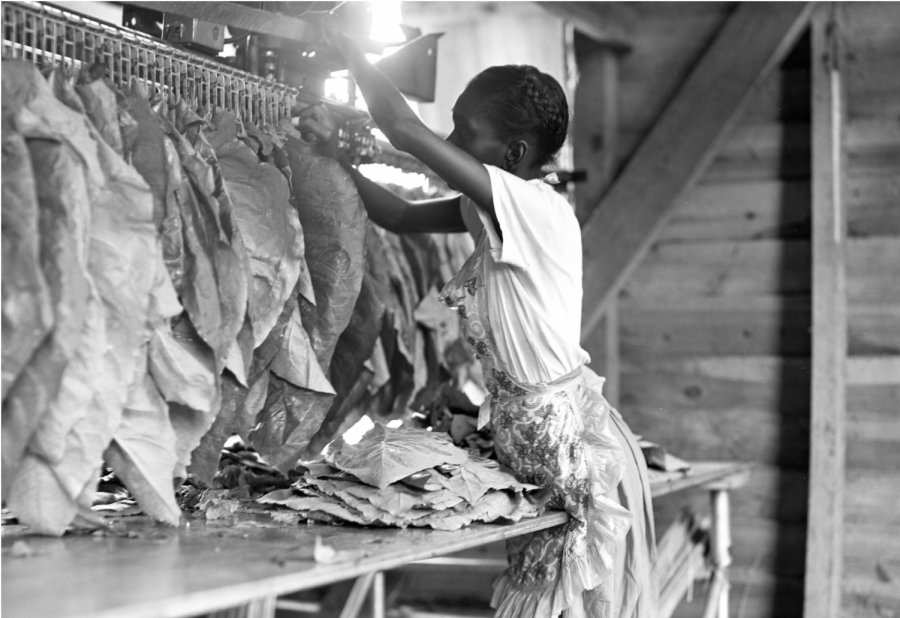The Farm Workers Movement: Stories from Delano
The stories from small town farm workers who fought for their rights
You’re a farm worker; you’re working grape vines this season.The weather man said on the TV that it’s going to be 99 degrees Fahrenheit today, but it feels so much hotter in the field. You carry a basket, loaded to the brim., It’s so heavy, if you add one more grape your arms will break off your body.. Your hands are so tired and dirty from the picking. You need water as the sweat rains from your brow, but there isn’t any. The $1 an hour you make is the money you use to support your family. You need this job to survive. That is what the farm workers of the 60s had to deal with every day.
On March 30, Mt. SAC’s programs El Centro and Arise collaborated to throw a Zoom event to tell the untold stories of the farm workers movement that happened in the 60s. The event took place on the eve of Cesar Chavez Day, an activist and a leader of the United Farmworkers..
Before the laborers organized, the conditions of the fields were horrendous. The workers didn’t have water or other basic necessities. They worked day in and day out in the blistering heat for very little pay. Presenter and Mt. SAC History Professor, April Tellez, went into detail just how bad the conditions were.
“During this time, the civil rights era, is where we see constant exploitation. Despite some achievements we still have the constant degradation of farmworkers,” Tellez said. “I’m talking about degradation not only in terms of exploitative pay, horrible pay, but not even having toilets in the field. Can you imagine not having a toilet? Not having access to fresh water? They would have a soda can and fill it with water and they would share it, the whole day.”
The effects of the field did not just end once the laborers went home, they lasted long after.
“Pesticides were being dropped all over them. They don’t just stay in your body and affect you, they are going to affect your fertility, your future generations. Simultaneously there is also a lack of access to healthcare,” Tellez said.
Trying to make more money to provide, parents often brought their children into the fields where they worked. Roger Gadiano, a resident and farm worker at the time, explained how he would let parents bring their children.
“I know I broke the law. The Mexicans were there and they wanted to make more money. I said, ‘Go ahead.’ They opened the back of their pickup and all these kids came out,” he said. “They’re underage and they help their father pick raisins so they can make more bonus, because it’s piece work.”
Gadiano said that the children were willing to help. “The kids saw what their parents did and they were willing to help their parents. The farm worker’s kids know what their parents do. They know they’re working hard. There was no shame in it.”
The farm workers worked so hard just to earn a living. Often they were paid very little and weren’t able to get help from the government. “Working 12-14 hour days, being paid 75 cents an hour, it’s horrendous. It’s a lack of respect and it’s so frustrating, because I’m not only speaking about this in a historical context, this is still happening to people as we speak.”
The laborers in Delano, California had reached their breaking point and began to organize. They wanted better working conditions and better pay. In 1966 Filipino and Mexican American farm workers got together and led a strike for what they believed was right.
Roger Gadiano, a Delano resident at the time of the strike, explained just how much of a miracle the strike was.
“The strike didn’t come out of the community of Delano, they came out of the labor camps,” he said. “This ain’t the Ford assembly line where they can just stop the conveyor belt and everything stops. We are talking about labor camps that were 30 miles apart. Everyone went on strike at the same time on the same day, throughout the valley. Isn’t that amazing?”
Alex Edillor had parents who worked in the fields. They couldn’t afford a babysitter, so Edillor was often home alone after school. He remembers the day the strike began because of how bizarre the experience was.
“On September 8, it was a lot different. I came home and they were already home. My mom and dad said were on strike. I knew this was something big,” he said.
The strike and protest shook the whole small community of Delano. It affected everyone, even children like Edillor.
“There was a lot of tension at the dinner table. From my vantage point things were not the same. Children that we used to play with, all of a sudden, we became separated [from each other] because they weren’t part of the strike. It really was just huge social upheaval.”
In history books women are often left out when it comes to the movement. Often women were the ones who faced the most discrimitation and hardest circumstances.
“Women had the constant threat. Filipinas and Mexican American women, they had the constant threat of sexual violence in the fields,” Tellez said. “It’s often not talked about. It’s often not looked at enough.”
Women were often afraid to come forward for fear of losing their jobs. If it wasn’t them losing their job it could’ve been their husband or even their brother who worked at the same farm.
In the UFW women were heavily involved and were integral parts of the movement They often were the ones feeding the frontlines or even protesting.
Edillor said, “the misconception that this was run by men needs to be smashed. There were men and women side by side. Women were just as important.”
The movement was able to organize over 17 million people to boycott grapes. The grape boycott led to the workers being able to unionize and resulted in an increase in wages. After years of fighting, the movement successfully accomplished what they had intended from the beginning.
Tellez said, “farm laborers I have so much respect for, because they work harder than I ever have. And I’m the first to admit that. I’m the first to praise people who work literally from the ground, because they feed us. I get very angry, very passionate, and frustrated because there is such a disconnect. People sit down to pray, but yet they don’t give homage to those that actually pick the food and that is horrible and that is not acceptable. I’m the first to say I know I’m in a privileged position to recognize that.”



